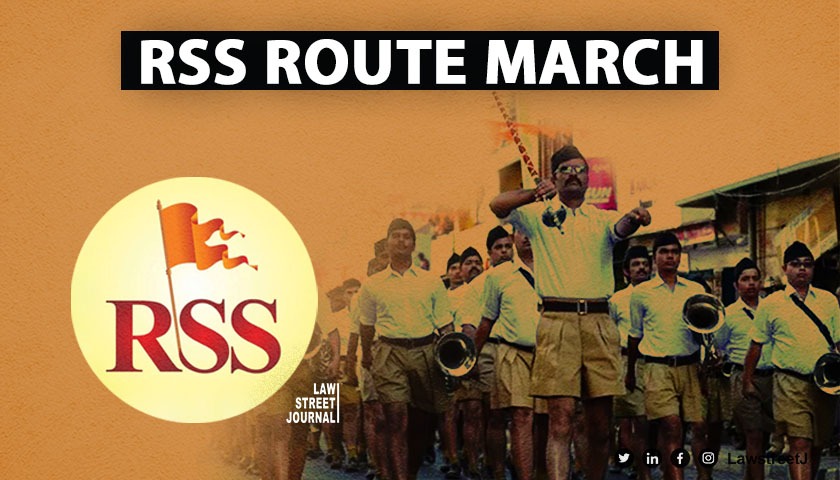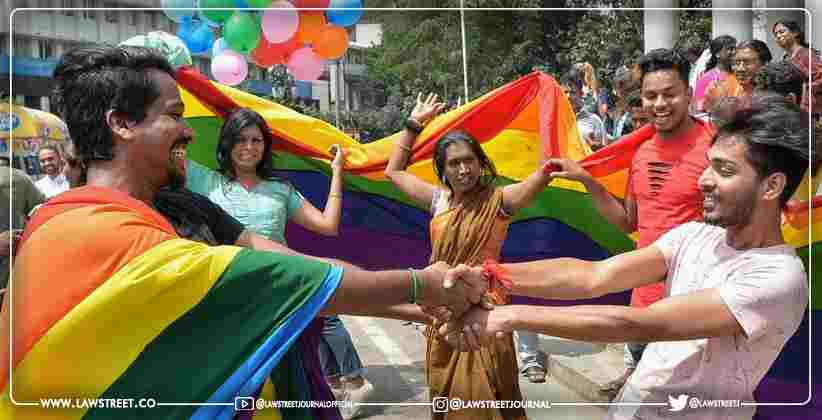Madras High Court has directed the Tamil Nadu Police to grant permission to the Rashtriya Swayamsevak Sangh's "route marches", on whose representations the Tamil Nadu government had been sitting for almost a month.
The permission was in respect of route marches to be held in 35 places across Tamil Nadu on October 22 and October 29 this year.
The matter was decided by a single judge bench of Justice G Jayachandran.
After sitting on RSS' members and functionaries representations for almost month, the Tamil Nadu government had finally refused them permission to conduct route marches and public meetings in the state.
It based its refusal on several grounds including that there existed mosques and churches and a regional office of the DMK, along some of the proposed routes.
It also cited potential traffic congestion on some narrow roads.
Setting aside such refusal, the bench held that such grounds as existence of mosques and churches along the route go against the very principle of secularism envisaged by the Constitution.
The single-judge bench held, The tenor of the rejection order is certainly not in tune with a secular or democratic way of governance. It is neither in obedience nor compliance of the Hon'ble Supreme Court of India's dictum. By citing the existence of the structures, place of worship of other religion or office of some organizations, which do not share the same ideology of (as) RSS, the request of RSS to conduct procession and public meeting is rejected. This order is contrary to the principle of secularism which is the foundation of our Constitution, the Court said.
It cautioned that the State authorities and the participants of the route march must ensure peaceful conduct of such marches and meetings.
The issue of refusal of permission by Tamil Nadu Police and Government to RSS to carry out marches and meetings is not an unprecedented occurrence.
It ad come up before the Court in October last year as well, when the RSS had sought the State government's permission to carry out marches and public meetings at several locations across the state to mark Gandhi Jayanti and 75 years of Indias independence.
Then too, while the State government had refused permission citing intelligence reports anticipating law and order problems, a single-judge of the Madras High Court had come to their rescue and given the RSS permission to conduct the march subject to certain restrictions.
Upon challenge to the order, a division bench of the High Court lifted those restrictions too and emphasised the importance of protests for a healthy democracy.



![TN Medical Council declares change of gender identity of LGBTQIA+ as misconduct [Read Notification]](/secure/uploads/2022/12/lj_5268_5cebb05a-97fb-40fb-8045-25cdf8f4207a.jpg)
![Madras High Court Directs Tamil Nadu Government to Ensure Quota for Transgenders in Local Body Elections [Read Order]](/secure/uploads/2023/08/lj_2507_7a03d113-08b1-4670-b6fb-9058aee481d0.jpg)
![Anti Corruption sleuths acted like "puppets in The Muppet Show", HC notice to ex TN CM in disproportionate assets case [Read Order]](/secure/uploads/2023/09/lj_8675_7b37fc02-1b2d-4f4a-9816-3df20545b37e.jpg)




